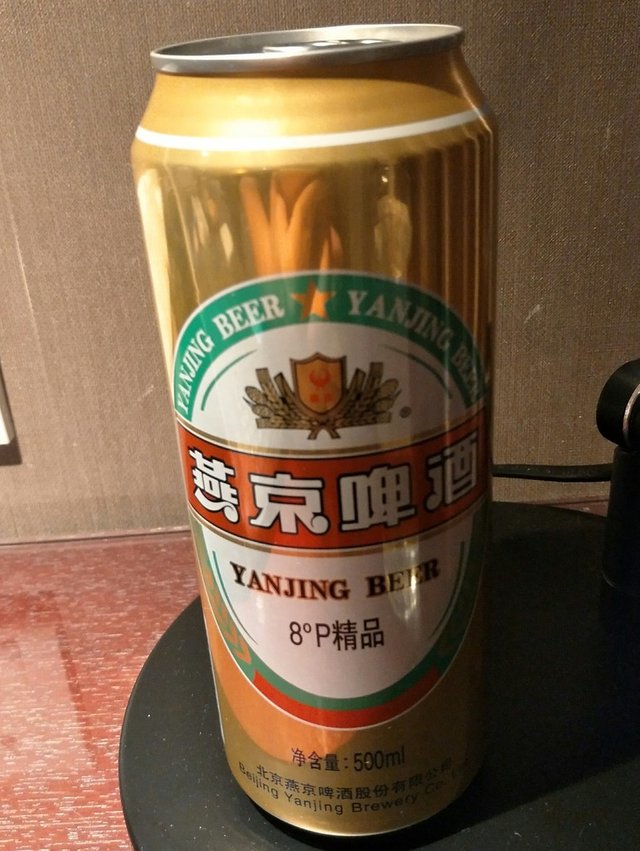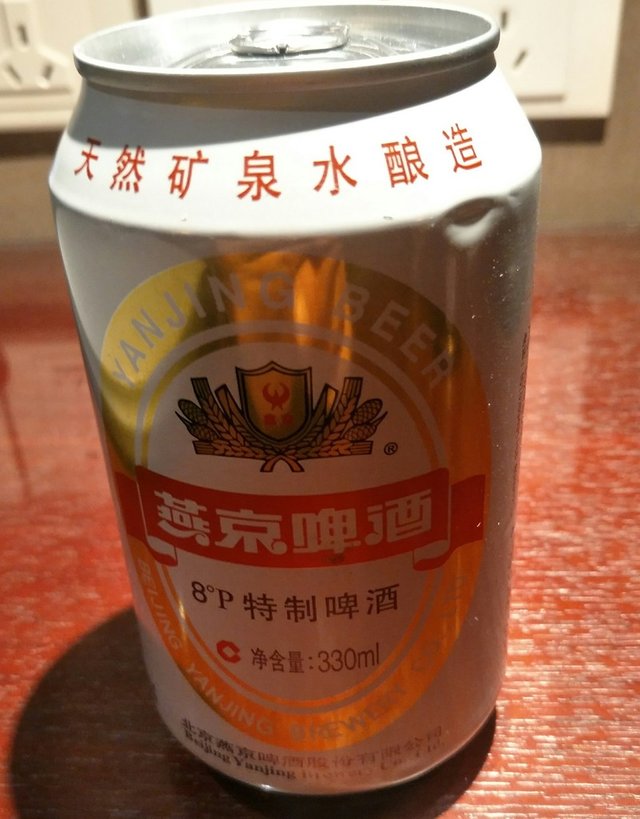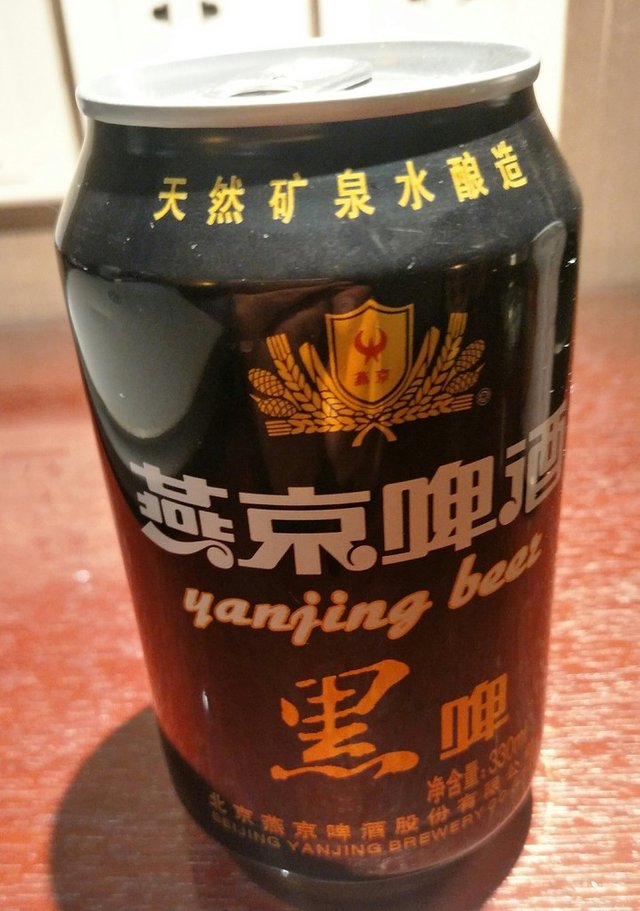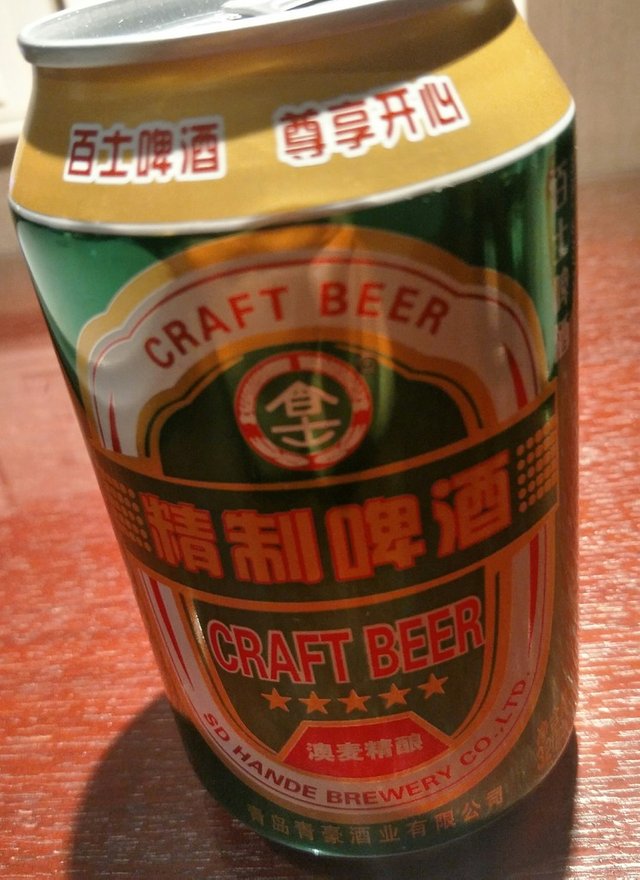Chinese Beer: Three Yanjings Plus One Other
So, as I write this, I am sitting in a hotel room in Shanghai, and not too far from Hongqiao Airport and Railway Station. Tomorrow, I board I am going across town to Pudong International as I make my way back to New Jersey for about 10 days. My hotel is in the middle of nowhere, and it's a weird situation I will write about later. So, in an effort to kill time, I did a small beer run at a nearby supermarket. I thought I would sample all the different types of Yanjing cans they had on the shelf.
Internationally speaking, Chinese mass market beer is more well known for Tsingtao. The second largest brewery in China is Harbin, and another well known brand would be Snow. However, Yanjing is actually the third biggest brewery behind Tsingtao and Harbin in the domestic market, and it is local to Beijing. It's actually bigger than Snow in some respects. So, how did my random supermarket sample fare?

Again, this is a random supermarket grab, not a systematic analysis. The above is a 2.5% brew. It's light, it's watery, and it tastes like your average American lite beer. That's not actually meant as a compliment. When I first moved to China three and a half years ago, there was a time I actually wanted to get smashed. Only, I didn't check the percentages of the beer I bought, drank a lot, and felt more bloated and carbonation gassy than anything else. This rates as that type of Chinese beer.

Okay. This one was a little confusing. Different label. The Chinese tag line says 特制啤酒 Tèzhì píjiǔ . The Characters 啤酒 píjiǔ means beer, 特制 Tèzhì means "specialty." So, in Chinese, this is claiming to be a "specialty beer." Is it? Um, no. It's 2.5% and tastes a little less watery than the one pictured above this one. I have noticed that some wheat beers in China end up in white cans. Was this anything like a wheat beer? No.

So, out of the three Yanjing cans I bought, this one was easily the best. It's Yangjing's dark beer. The labeling doesn't claim that it's a stout. It has a stylized, cursive 黑 Hēi -- which means black. This one is only claiming to be a dark beer. Only, it does taste like a stout. If you were to compare this to other mass market Chinese dark beers, I would put this one second to Tsingtao. It has none of the alcohol aftertaste of Snow Stout, but it is not quite as rich or as bold as Tsingtao's stout.

And this one? Oh, boy, I am a sucker. The oval of the can's logo made me thing this a Yanjing beer. I didn't look closely Only, it isn't. It's from Shandong province. I fell for the English on the can. "Craft beer." It's mentioned twice in two different fonts! Is this a craft beer? Is it hoppy? Does it have the bite of an IPA? Fuck no. It's a 2.5% beer, and it tastes a lot like the two non-dark Yanjing beers mentioned above. There is absolutely nothing craft about this.
China is a country that doesn't have the same hundreds-of-years-long tradition of brewing beer the way Belgium, Holland, German, and other places does. But the desire to understand beer here is growing. Unfortunately, the country still has a lot left to learn when it comes to domestic, mass market brewing.
Thank you @richristow, very interesting post! I tried the generic Tsingtao beer when I visited China in 2004 and I liked it, it is by no means a craft beer but easily drinkable and it goes down nicely with Chinese cuisine!
I haven't had any Chinese beers, would you believe. Although, I have sampled many across Asia and I'm sure I'll set that record straight soon!
Cool post!!
I probably would only have been able to down one beer!!
China's craft beer market is actually starting to emerge. I've found small breweries who make their own beers in a few places now. They've had IPAs, wheat, pilsners...you name it. Obviously it doesn't compare to the craft beers back home but it's a nice change from the local watery beer.
Interesting, and I don't think Yanjing beer exists in Shenzhen, Guangdong
I invite to Ukraine for beer))))